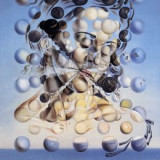The Speaker
-
hiraeth
8 years agoThoughts on the Speaker
I came across some initial drafts for essays/opinion pieces that I've wrote for school so I merged them together and revised it a bit. Thought I'd share.
--
The speaker is the voice, the 'narrator' of the literature. It's important to note that the speaker does not always have to be the author of the poem/literature, often times there is a disconnect between the speaker and the author (it can be argued that Walt Whitman's 28 Young Men is written in the perspective, but the case that it was his way of exploring homosexuality still persists, and I believe is the generally accepted one).
Another example can be seen in the novel "Written on the body" written by Jeanette Winterson, in summary it is a story that follows the love between the protagonist and Louise (their love-interest), what is extremely interesting to note is that Winterson wrote this novel purposefully abstracting the sex and the gender identity of the protagonist, so that there exists the potential to interpret the protagonist as a male, female and a transgendered person.
Take this small excerpt and notice how purposeful it is:
"I hesitated to ring the bell. Hesitated because to reach the bell meant pushing my private parts right into the head of the snake"
Interestingly the speaker chose to say "my private parts" instead of being straightforward and identifying the genitalia. Although it may seem like the speaker is saying it like so in order to not be lewd, that is not the case since throughout the text, the speaker (the protagonist) is relatively open and straightforward about their sexual desires. The implications of choosing to say private parts is interesting ... [retracted since it's verbose and goes on a bit of a tangent]. Essentially the speaker chose to say private parts because throughout the text they have built up this theme of alterity, and this only reinforces that theme.
The speaker of the poem can be written in a first-person narrative or a third-person narrative, and choosing which narration to go with can alter a poem greatly. Generally speaking, the first-person narrative is utilized to give the appearance/illusion of the literature being 'personal', whereas the third-person narrative is typically utilized in an attempt to make the speaker seem much more powerful since they are omniscient, the all-knowing voice. This is not always the case though, literature is not bound to rules and can switch between narratives. Another thing to note is that the speaker is not always truthful; they can be lying either outright or through omission. The narrative might be third-person but it might be subjective, and thus is essentially lying via omission since you are only getting a piece of the truth.
For instance, take Louise Gluck's poem "The Untrustworthy Speaker", the whole poem is essentially the speaker saying "don't' trust a word I say, I have had my heart broken, so now my mind is broken too", but should you trust that the speaker is telling the truth? On one hand, the speaker seems to be objective, they are spilling their truths onto the canvass knowing exactly what they are doing, but conversely the speaker said not to trust them, so are they being subjective since they are hurting, are they only focusing on what they think is the "bad" parts of them?
Here's an excerpt from that poem if you're lazy to search it up:
"Don't listen to me; my heart's been broken.
I don't see anything objectively.
I know myself; I've learned to hear like a psychiatrist.
When I speak passionately,
that's when I'm least to be trusted."
Another thing to note about the speaker, is that sometimes they purposefully omits things because they expect the reader to fill in the blanks, whereas other speakers might just straight spoon-feed you their story. There is a multitude of reasons behind both of the approaches, but it sort of boils down to either the speaker trusts that you will put together things (or might not expect you to, they might lay out the clues throughout the poem masterfully thinking they are akin to Moriarity) or just wants to tell their story "as-is' to act as a diary. (Personally, I try not to spoon-feed unless there is intent behind it. One should trust the readers more, people who watch movies can piece together that in a scene, say a car exploding then an immediate jump-cut to a person crying, that the car is important to the person, the same thing can be done in literature. It would be a bit weird if the car exploded and slowly panned over the person saying "oh no that is my car that just exploded!" between sob, and I digress).
So to summarize, experiment with the speaker, don't be afraid to utilize a new narrative (if you're always writing in first-person than try third-person) or switch between them in the poem, don't be afraid to make jumps between stanzas, the readers can usually piece it together! Make the speaker lie to the readers, make the readers work to find the truth or spoon-feed it to them, or even better spoon-feed them a lie then make them work to find the truth. The speaker is extremely important to the poem, so don't be afraid to make them seem unimportant. Be a mad scientist and experiment! -
GB
8 years agoGreat article, Mark. It widens the horizon of thinking. Thank you so much for sharing.
"The speaker of the poem can be written in a first-person narrative or a third-person narrative, and choosing which narration to go with can alter a poem greatly"
^^ While writing as a first-person is of greater impact on the mind of the reader and gives clear impression that the poem is true, personal experience, still writing as a third-person is much favourable to me, it's as you exactly said, that feeling of omniscience which makes you manipulate the poem freely. The idea of switching between narratives sounds a bit difficult to me, if you have any examples, please share them.
"Another thing to note about the speaker, is that sometimes they purposefully omits things because they expect the reader to fill in the blanks"
^^^^I think this a key for a successful writing, a direct simple and clear wording is not always interesting, I do believe that the author must make the reader think about the poem and ponder over some expressions, otherwise it would be pretty superficial and devoid of creativity. -
hiraeth
8 years agoThank you for reading Samia. :)
I cannot recall too many examples in poetry, but it's commonly used in novels, one example would be "Saul and Patsy" which takes on the narrative switching between husband and wife's point of view. I'll try tracking down some poems with that switch between narratives. -
GB
8 years agoYou know what Mark, you are so right there, when I was reading "God help the child" this article crossed my mind. In that book Morrison gives voice for each character, a space of thinking aloud, through which everyone could tell part of the story according to her/his mind. Very interesting style and a typical application for the idea of switching between narratives, smoothly without making any kind of confusion.
We still have to figure this out on the level of poetry.

